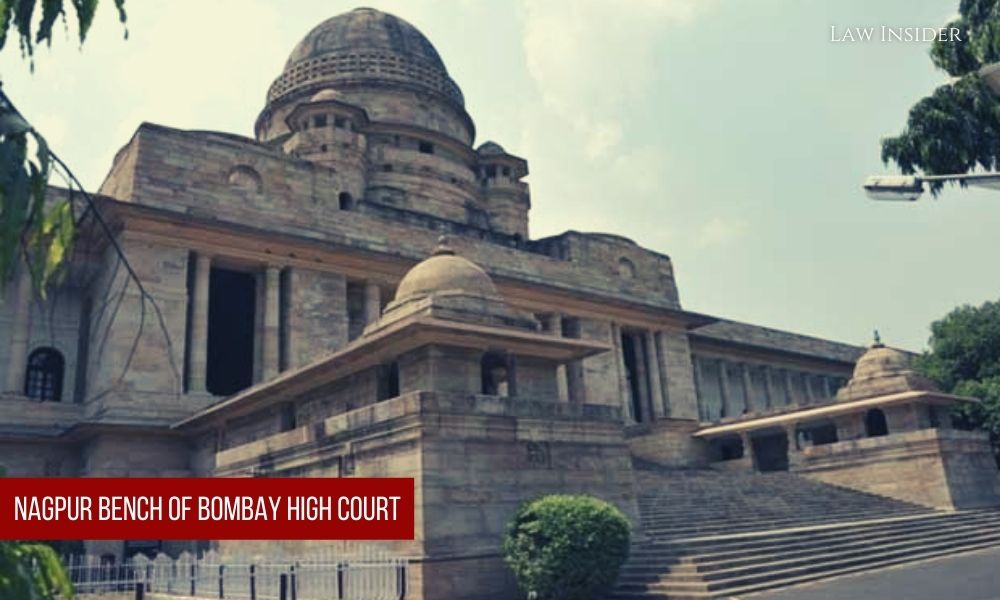Aastha Thakur
Published on: 17 October 2022 at 17:55 IST
The Nagpur Bench of Bombay High Court held that a person who was forced to cross the railway tracks due to the absence of a foot over-bridge and gets hit by a train will not be considered negligent and his kin will be entitled to compensation under the Railways Act, 1989.
Justice Abhay Ahuja states that, “A person who comes from a village looking for a job, boards a passenger train holding a valid journey ticket, alights from the train and is trying to exit the Railway Station in the absence of overbridge being forced to walk along the tracks and gets hit by another train and dies, cannot be said to be intentionally careless or negligent“,
The court was hearing the appeal matter filed by the widow, son, and mother of a man who died after being hit by a train while crossing the railway track and awarded a compensation of Rs. 8 lakhs to the appellants.
The deceased had used a valid ticket to go from Gondia to Rewral. After getting off the train at Rewral, he was walking along the railroad track when another train struck him, killing him instantly.
The Railway Claims Tribunal in Nagpur denied the family members’ request for compensation on the grounds that the person died due to his own negligence and was not longer a bonafide passenger after getting off the train. Furthermore, according to Section 123(c)(2) of the Railways Act, the occurrence was not an unpleasant incident. Therefore, the appeal was filed by the family.
Advocate R. G. Bagul for the appellants submitted that there was no foot over bridge at the railway station on the date of the incident. Before the foot over bridge was opened, the passengers had to get down on the platform and walk along the railway track or cross it in order to exit the station. This clearly shows negligence on the part of the railway authorities. There was no fault of the deceased in the incident.
The counsel representing the Railway department submitted that the negligence of man leads him loss of life. In reasonable situation person would be more aware of his surroundings while crossing the railway track particularly while then there is no over bridge.
The court cited Section 2(29) of the Railways Act’s definition of “passenger,” noting that it does not imply that a passenger loses that status after disembarking from a train and experiencing an accident. The court stated that neither does the Railways Act consider nor acknowledge this idea.
The Delhi High Court concluded in a related case that the deceased could not be regarded negligent but that the railway administration was negligent, and the dependents were entitled to compensation. The court cited this decision in Rakesh Saini v. Union of India.
The railway station’s foot-bridge was only made accessible to passengers after the event, the court noted. The only other choice left to the passengers before that was to walk alongside the tracks or cross them.
The court ruled that the dead could not have foreseen that a train would come and hit him.
It relied on Union of India v. Prabhakaran Vijay Kumar in which the Supreme Court held that Section 124A of the Railways Act lays down strict liability in case of railway accidents.
The court added that the Railways Act is a beneficial law and that the provisions should be interpreted broadly rather than in literal or hyper technical manner.
According to the court, when it comes to Section 124-A of the Railways Act, it doesn’t matter who was at fault.
It was noted that there was no proof of self-inflicted injury in the current case, not even a claim by the railway authorities.
The court set aside the decision of the Railway Claims Tribunal declining compensation to the appellants, and said that, “Ergo, this Court is of the view that the deceased, who was a bonafide passenger who died due to an untoward incident and the appellants being the dependents of the deceased would be entitled to compensation under Section 124-A of the Railways Act.“

